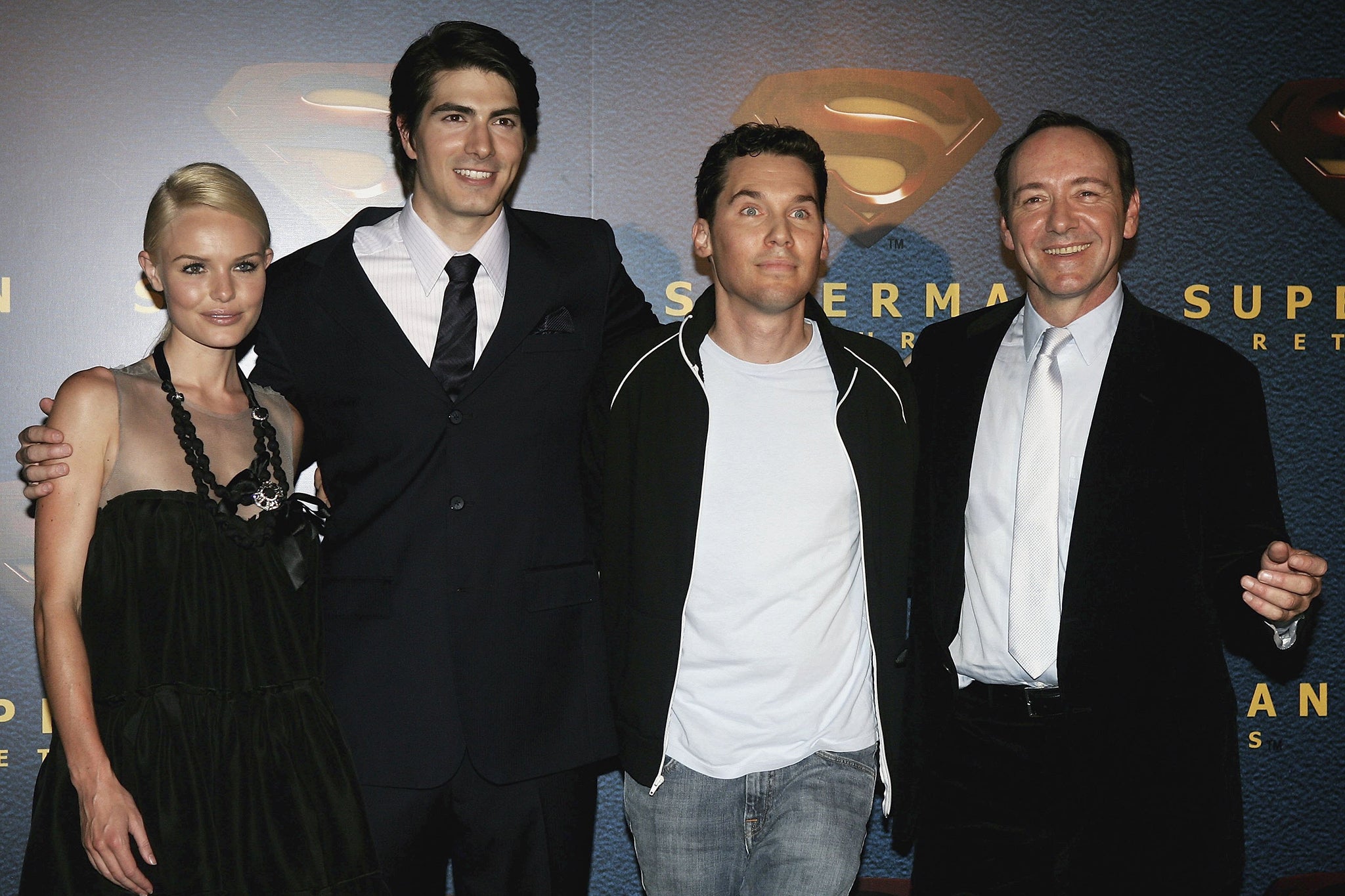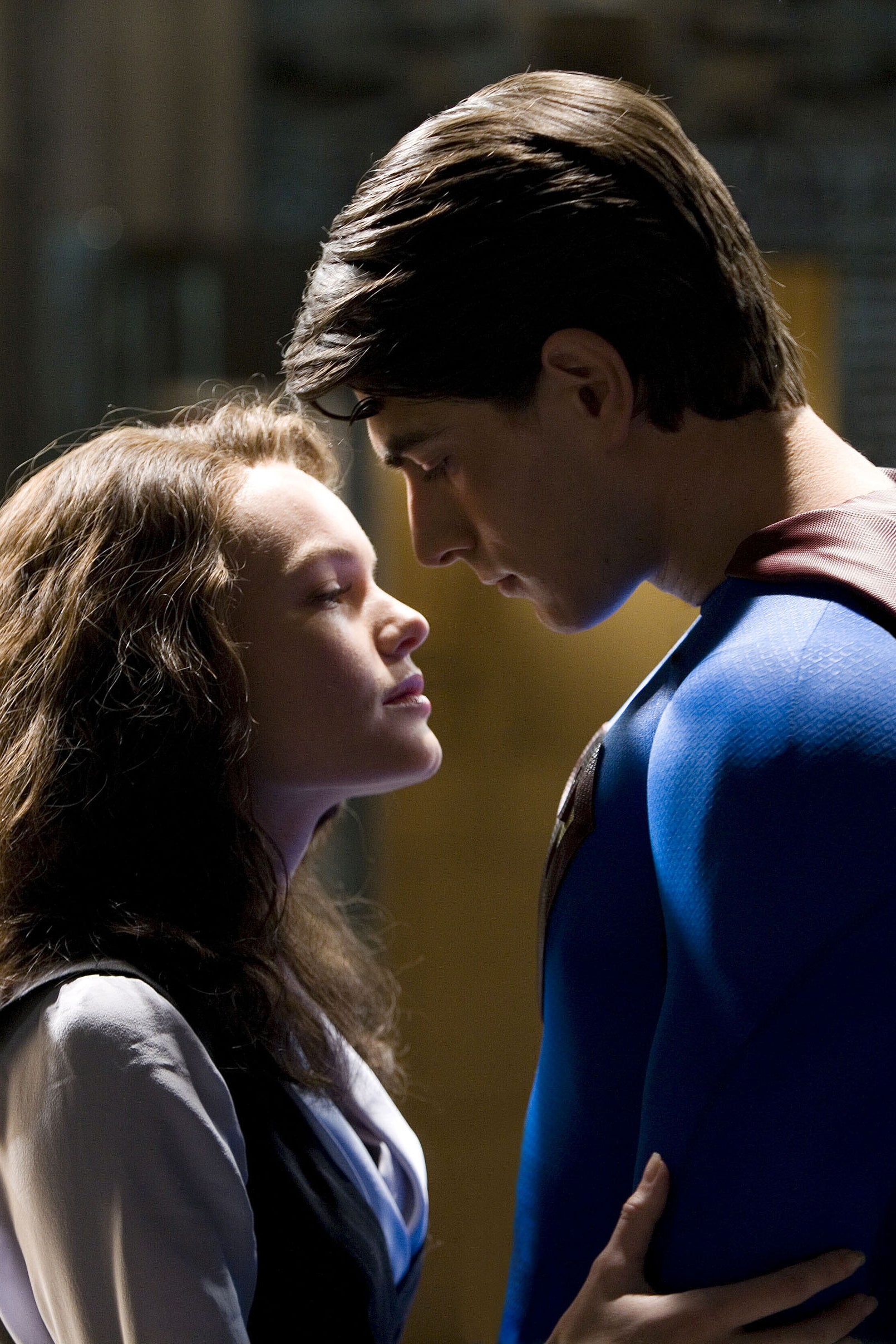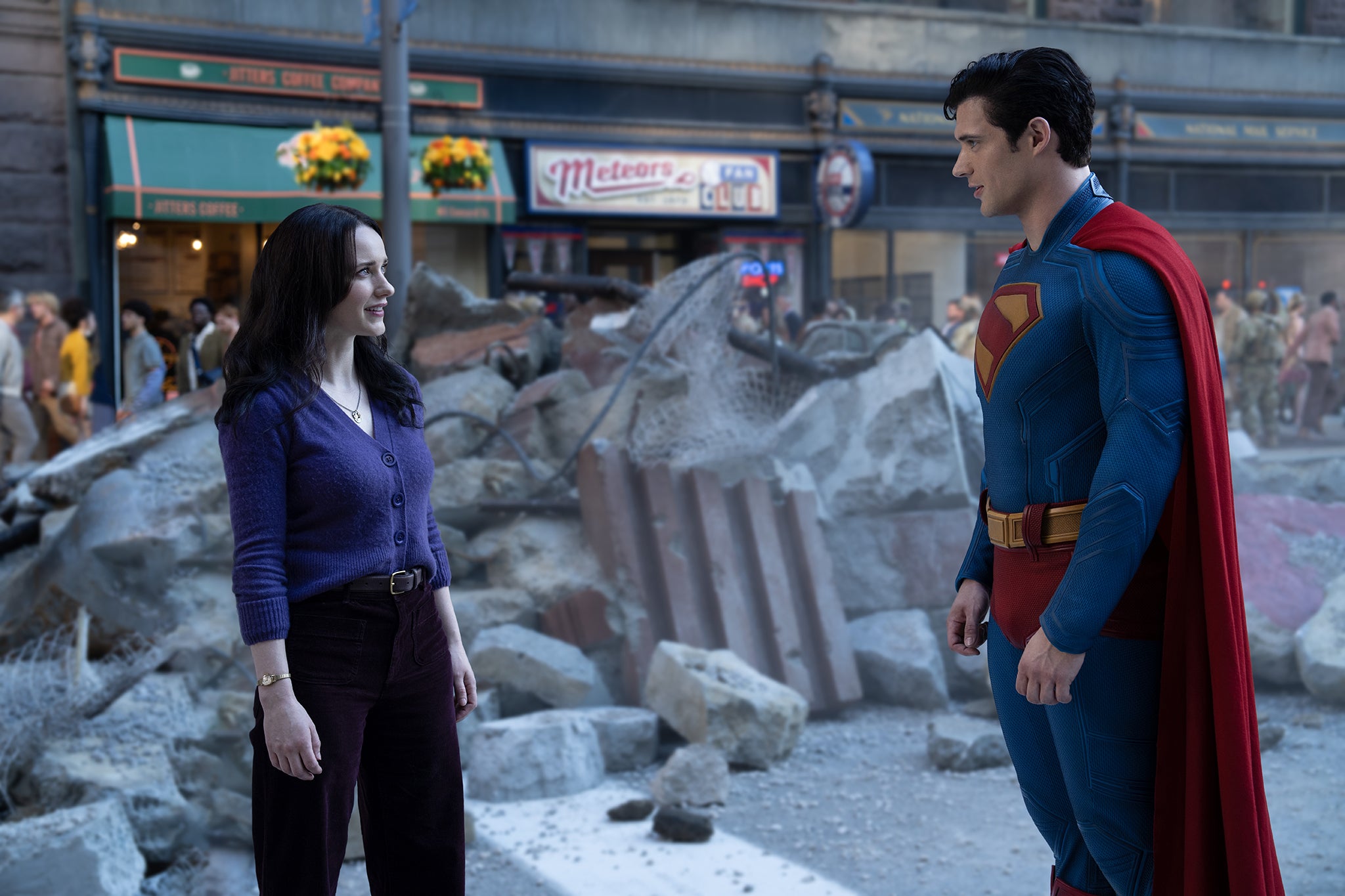This week, Superman will land in cinemas once again, this time played by actor David Corenswet as part of James Gunn’s reshuffle of the DC Universe. It’s been just three years since we last saw Henry Cavill don the cape – for a mid-credits appearance in Dwayne Johnson’s dismalBlack Adam – while we’ve had alternate versions of the character in TV’s Arrowverse as well as fanboy-pleasing cameos in The Flash film. But there was a time, back before blockbuster cinema was fully at the mercy of superheroes, when Superman floated in limbo. After Christopher Reeve’s final outing as the last son of Krypton in Superman IV: The Quest for Peace (1987), it took a now-unthinkable 19 years for Superman to return to the big screen in 2006’s aptly named Superman Returns, a Bryan Singer-directed nostalgia-fest.
That film, starring an unknown actor named Brandon Routh as Superman/Clark Kent, is comfortably the finest in the franchise outside of Reeve’s original Superman (1978) and Superman II (1980). It also boasts one of the greatest action set pieces in any of the films: Superman saving a shuttle-launching-airliner as he plummets into a baseball field.
Yet Superman Returns is largely overlooked, for being too quaint, perhaps, or drowned out by the racket of the subsequent Snyderverse (2013’s reboot Man of Steel, then 2016’s Batman v Superman: Dawn of Justice and 2017’s Justice League). Maybe it’s the association of Singer and Kevin Spacey (as baldy baddie Lex Luthor), whose reps are marked with allegations of sexual misconduct (all of which have been denied by both men, respectively). “For me it just didn’t come together,” says Ian Gordon, author of Superman: The Persistence of an American Icon. “I think most critics had that view.”
There were, of course, multiple attempts to make a Superman film after Superman IV, a not-so-guilty pleasure for fans of a certain age (eg me) but widely accepted as a low-budget super-stinker. There was a mooted Superman Reborn film, about Superman’s dead spirit latching onto Lois Lane’s unborn baby – an idea so bad it would boggle even the mind of supervillain Brainiac – as well as Superman Lives, the notorious, unmade script by Kevin Smith for which hairdresser-turned-movie mogul Jon Peters ordered three specific rules: Superman wasn’t allowed to wear the suit, he wasn’t allowed to fly, and he had to fight a giant spider. Tim Burton and Nicolas Cage then came on board for their also-notorious, also-unmade version of Superman Lives, which was cancelled after tens of millions of dollars had been squandered on its development, its sets, and Cage’s suit and wig combo. And then JJ Abrams wrote a version, the mythology-twisting Superman: Flyby, set to be directed by Brett Ratner or McG.
While filmmakers were getting their red pants in a twist by trying to reinvent Superman, Singer – who began the post-millennium superhero boom with X-Men (2000) – had something classic in mind. Staying at the same hotel as original Superman director Richard Donner, Singer pitched Donner the idea of a Superman film that he wanted to make; Donner gave Singer’s vision his blessing, so Singer pitched it to Warner Bros.
In the Superman Returns story, scripted by Dan Harris and Michael Dougherty, Superman has been missing for five years, having flown deep into space to inspect the ruins of his long-since-destroyed home planet, Krypton. Back on Earth, Lois Lane (a miscast Kate Bosworth) is engaged to another man, Richard (James Marsden), and has a five-year-old son, Jason (Tristan Lake Leabu). Meanwhile, Lex Luthor is out of prison and cooking up a scheme to create a Kryptonite-infused land mass, to be spawned from the crystal technology in the Fortress of Solitude (Superman’s Arctic weekend place), which will kill billions.
It’s a slave to the Donner movies. The film had to introduce Superman to people who hadn’t seen that original movie, and they couldn’t connect in the same way
Superman comes back to Earth – right at the same time Clark Kent comes back to the Daily Planet newspaper, coincidentally – and gets straight down to business by saving that airliner with Lois onboard. It’s a skin-prickling, tears-in-the-eyes sequence as Superman tussles with the physics of catching a careening airliner in mid-air. But getting the cold shoulder from Lois is even harder. Indeed, the film is more interested in the angst between Superman and Lois than the age-old conflict between Superman and Lex Luthor – even after Luthor shivs him with a shard of Kryptonite.
Singer later conceded he may have been playing to the wrong crowd. “I was making it for that Devil Wears Prada audience of women who wouldn’t normally come to a superhero film,” the director told Ed Gross, the author of Superman: The Definitive History and host of the Voices from Krypton podcast.
It’s telling that Singer sought Richard Donner’s nod of approval. Superman Returns radiates nostalgia like an especially glowy lump of Kryptonite. There’s a recreation of Superman’s car-lifting Action Comics debut in 1938 and shades of the Fleischer Studios-produced Superman cartoons from the early 1940s. And while it isn’t explicitly called a sequel to the Christopher Reeve films, it clearly follows on from Superman and Superman II (though it wisely ignores the dafter shenanigans of Superman III and IV).
Perhaps more than a sequel, though, Superman Returns is a love letter to the early Reeve films, from its inclusion of the classic John Williams score and the films’ whooshing titles to the casting of Routh. The actor, aged just 26 when Superman Returns flew into cinemas, had previously auditioned for the Clark Kent prequel TV series Smallville, as well as Abrams’ Flyby (a 20-year-old Henry Cavill also read for that one). Singer recalled meeting Routh for a coffee to talk about playing the role – he knew Routh was the man (of steel) for the job as soon as the 6ft 2in actor stood up from the table. Routh has enough of Superman’s strapping heroism and Clark’s dorky, out-of-sorts charm to feel like the same version of the character played by Reeve.

As detailed in Ian Gordon’s book, nostalgia is integral to the character – a cultural icon with a deeply embedded mythology. “The character’s almost 90 years old,” he tells me. “Nostalgia’s always going to be a big part of the appeal.” Even at the time of the 1978 film, adds Gordon, there were “multiple levels of nostalgia” at work.
For Gross, Singer’s film may be too steeped in nostalgia. “It’s a slave to the Donner movies,” he explains. “The film had to introduce Superman to people who hadn’t seen that original movie, and they couldn’t connect in the same way.” Gross recalls that composer John Ottman wanted to “shake up” the John Williams theme but Singer insisted it should be “a note-for-note recreation”. He also points to Luthor’s murderous real estate scheme – a retread of Gene Hackman’s Luthor.
Superman Returns offers one notable update to the Superman mythology: the revelation that Clark is the biological father of Lois’s son (five-year-old Jason throws a grand piano at a henchman – a dead giveaway on the paternity front). It’s impossible to watch without thinking of the speech in Kevin Smith’s Mallrats about why Superman and Lois couldn’t have sex (“Do you think her fallopian tubes could handle his sperm? ... The only way is with a Kryptonite condom. That would kill him.”)

It’s interesting that Superman Returns took flight at a time when superheroes were starting to dominate blockbuster cinema, but hadn’t quite figured out the formula. Blade (1998) provided an idea of how to make comic book films for grown-ups. X-Men was the first big-budget stab – via adamantium claws – at costumed Marvel superheroes, followed by Spider-Man (2002), which was very much a comic book put on screen. Batman Begins (2005) gave the Dark Knight a real-world rehaul and Iron Man (2008) fully cracked the formula, setting the template for comic book franchises moving forward. By contrast, Superman Returns is pleasingly old-fashioned, a re-run of the genre-defining Superman and Superman II. Superman Returns is an exercise in spinning the world backwards. “That’s probably why people don’t remember it,” says Gross. “It was an also-ran. It was something people had already seen. It didn’t push Superman forward.”
Premiering on 21 June, 2006, Superman Returns made almost $400m (£294m) at the international box office, but absorbed the costs of previously unmade Superman projects. It wasn’t deemed successful enough to warrant a planned sequel. Routh later referred to this time as “a very slow fizzle out”. The actor got to play the character again in 2019 for the Arrowverse crossover, “Crisis on Infinite Earths”, playing a grey-shocked Superman inspired by the comic book series Kingdom Come.
Ed Gross wonders if Superman Returns simply got “lost in the shuffle”. Sure, it took 19 years for Supes to return to the big screen, but there was no shortage of other superheroes. Also, Smallville started in 2001 – “We had a Superman on TV every week!” says Gross – then two years after Smallville ended, Henry Cavill debuted as Superman in Man of Steel. But, for its faults, Superman Returns understands the character far better than the Zack Snyder-directed Cavill films.
Ian Gordon remembers being excited for the release but – like some (but certainly not all) critics – he was underwhelmed. “That night was generational,” he says, “because the first Christopher Reeve Superman, that’s kind of my film.” The importance of that first 1978 film in superhero cinema cannot be overstated. And there’s a reason Reeve remains the definitive Superman, the most faithful version, the one that channels the essence of the character. “People always said Christopher Reeve looked like he walked off the comic book page. Reeve is still the standard – the one by which everyone is automatically compared.”

In paying reverence to the Reeve films, Superman Returns captures the thing that’s absolutely fundamental to Superman: a touch of magic. This is a character, after all, that asks you to believe that a pair of glasses can disguise the fact that Superman and Clark Kent are the same person. In contrast, the Snyderverse Superman is a dour misery-guts with Dark Knight pretensions. And, most po-faced of all, he ditched the red pants (sorry, Snyder fans, but the pants are intrinsic to the magic.) “To me, Superman Returns is a far superior film to Man of Steel,” says Gordon.
There’s a nod to that all-important nostalgia in the trailer for James Gunn’s Superman, combined with Gunn’s knack for mining the silliest, most obscure fringes of comic book lore. The success of the new reboot – and likely the entirety of Gunn’s DC Universe – is down to whether the filmmaker can capture the traits that are as crucial to Superman as truth, justice, and the American way. As Ed Gross says: “Innocence, optimism, and the bright light that Superman needs to be.”
‘Superman’ is in cinemas from 11 July







